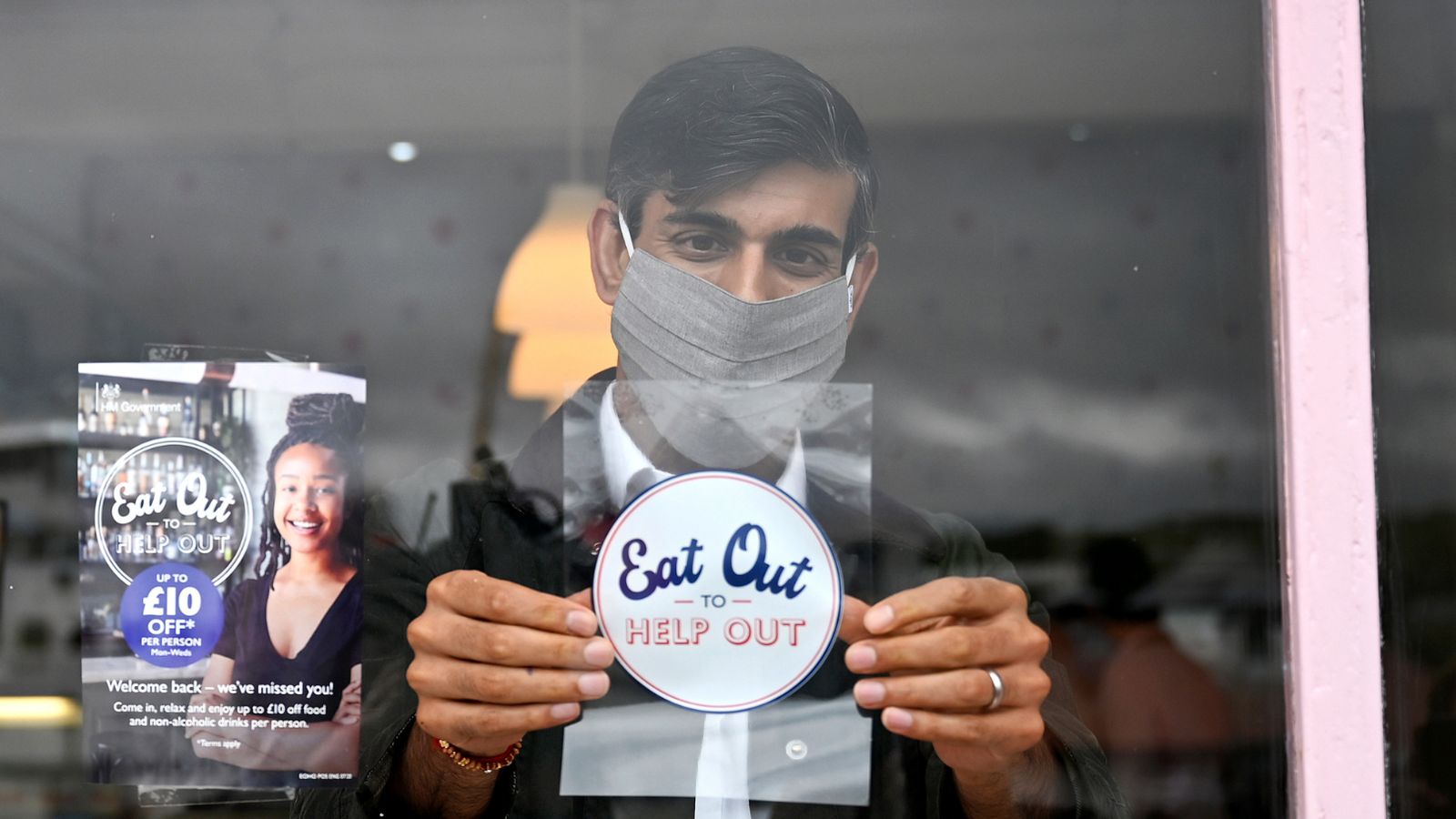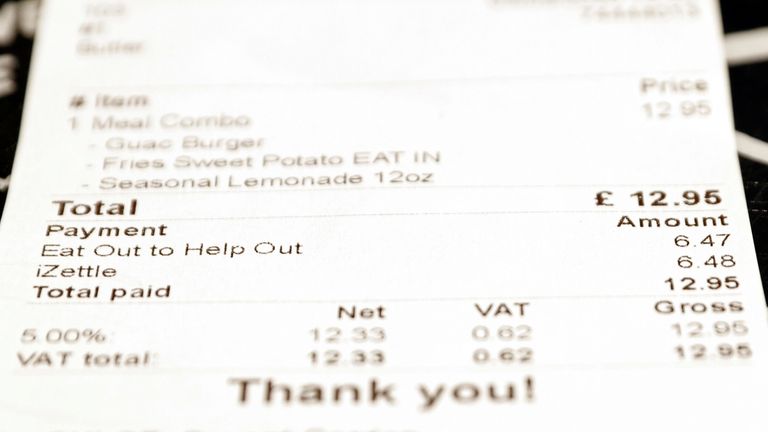The Eat Out to Help Out scheme caused a “significant” rise in new coronavirus infections, a new study suggests.
According to the University of Warwick, the sharp increase in COVID-19 infection clusters emerged a week after the scheme began.
The government’s initiative was designed to boost the economy after the national lockdown, and allowed pubs and restaurants to offer heavily discounted meals on Mondays, Tuesdays and Wednesdays in August.
Research from the university suggests that between 8% and 17% of newly detected infection clusters can be linked to the scheme.
Areas where there was a high uptake of Eat Out to Help Out also saw a decline in new infections a week after the scheme drew to a close.
Places that experienced high rainfall around lunch and dinnertime ended up seeing lower infection rates than areas that enjoyed nicer weather.
Restaurants that participated in Eat Out to Help Out saw an increase in visits of between 10% and 200% compared with the same period in 2019 – but academics concluded that the economic benefits of the scheme were short lived.
Dr Thiemo Fetzer said the scheme “contributed to community transmission” and “the acceleration of the second wave”.
He told Sky News: “The UK saw a massive explosion of cases in a way that was not seen in other countries.
“It’s that scheme that has helped to bring about an earlier second lockdown and restrictions on the restaurant sector that it was determined to help economically.”
Toby Phillips, executive director of the Oxford COVID-19 response tracker at the Blavatnik School of Government, said the findings were credible and align with his previous work looking at the surge in restaurant visits during the Eat Out to Help Out scheme.
He added: “The Eat Out to Help Out scheme was part of a general package of policy and communications over the summer that encouraged people to go out and adopt a ‘back to normal’ mindset.
“That creates this whiplash when one month you’re being told ‘Get out there, have confidence, go back to business, back to normal’ – and in the next month there’s a new tier scheme being put in place.”
He told Sky News the “pendulum swing” was not conducive to encouraging the kind of behaviour needed to live with the virus long-term.
“We should not subsidise people to gather indoors,” he said.
Earlier this month, Boris Johnson admitted Eat Out to Help Out may have contributed to the rise in COVID-19 cases.
“Insofar as that scheme may have helped to spread the virus then obviously we need to counteract that with the discipline and the measures that we’re proposing,” he told the BBC.
A Treasury spokesperson said: “We do not recognise these figures – which as the study itself admits, are ‘back-of-the-envelope’ calculations.
“Many other European counterparts have experienced an uptick in cases – irrespective of whether similar measures for the hospitality industry have been introduced.
“We’re continuing to work closely with businesses to help them be COVID-secure.”



